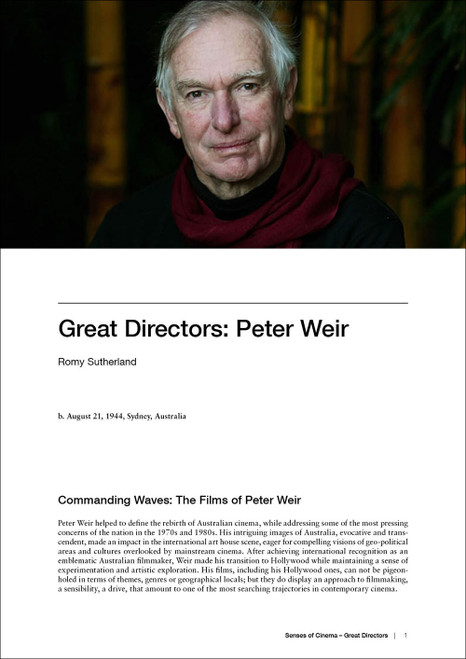Product Overview
Article sample:
Good plumbing seems to be essential for a happy life or at least as the film, The Plumber (1979), suggests with ironic wit. This film may be seen as part of the Australian New Wave, which has produced many talented filmmakers such as the maker of this film, Peter Weir. Weir is an innovative and stylised director who was, especially in earlier works, concerned with Australian mythologies and history such as in Gallipoli (1981), Picnic at Hanging Rock (1975), and The Last Wave (1977). The Plumber was a departure in theme from other films and came in between The Last Wave and Gallipoli. It was a made for television drama with an off-beat sense of humor, and makes use of, what was then, contemporary Australia and is comparable to the earlier made-for-television American films such as Steven Spielberg's Duel (1971). Both films navigate within the confines of genre films, transcend limitations of the television medium, and show promise of more great work from the directors in the future. Later, the film was released as a feature film in U.S. theaters. The Plumber is diabolically charming, yet if one examines the underlying elements, an incisive social commentary is revealed. The subtext of a monomaniacal plumber demonstrates a seething resentment from the working class towards the well-heeled and well-educated sectors in Australian society, as Max (Ivar Kants), the plumber seeks to systematically destroy the lives of husband and wife academics by destroying their plumbing.
About Senses of Cinema:
Senses of Cinema is an online journal devoted to the serious and eclectic discussion of cinema. We believe cinema is an art that can take many forms, from the industrially-produced blockbuster to the hand-crafted experimental work; we also aim to encourage awareness of the histories of such diverse forms. As an Australian-based journal, we have a special commitment to the regular, wide-ranging analysis and critique of Australian cinema, past and present. Senses of Cinema is primarily concerned with ideas about particular films or bodies of work, but also with the regimes (ideological, economic and so forth) under which films are produced and viewed, and with the more abstract theoretical and philosophical issues raised by film study.







